Videos
Agenda
BREAKFAST
An Antiracist Approach to Building a Diverse Academic Community
Presentations From:
LUNCH
Building Antiracist Academic Institutional Policies
Presentations From:
Speakers
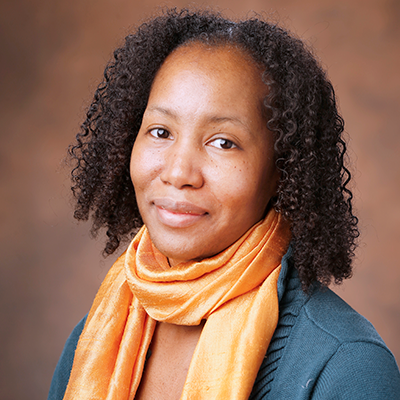
Audrey Bowden
@VUEngineering
Dorothy J. Wingfield Phillips Chancellor Faculty Fellow Associate Professor, Biomedical Engineering, Vanderbilt University
Audrey K Bowden is the Dorothy J. Wingfield Phillips Chancellor Faculty Fellow and Associate Professor of Biomedical Engineering (BME) and of Electrical Engineering (EE) at Vanderbilt University. Prior to this, she served as Assistant and later Associate Professor of Electrical Engineering and Bioengineering at Stanford University. Dr. Bowden received her BSE in Electrical Engineering from Princeton University, her PhD in BME from Duke University and completed her postdoctoral training in Chemistry and Chemical Biology at Harvard University. During her career, Dr. Bowden served as an International Fellow at Ngee Ann Polytechnic in Singapore. From 2007-2008, she was the Arthur H. Guenther Congressional Fellow sponsored by the OSA and SPIE and served as a Legislative Assistant in the United States Senate through the AAAS Science and Technology Policy Fellows Program. Dr. Bowden is a Fellow of SPIE, a Fellow of AIMBE, a Fellow of OSA, a Lewis H. Latimer Innovation Fellow and is the recipient of numerous awards, including the Air Force Young Investigator Award, the NSF Career Award, the Hellman Faculty Scholars Award, the Phi Beta Kappa Teaching Award, Ford Foundation Postdoctoral Fellowship, and the NSBE Golden Torch Award. She is a former Associate Editor of IEEE Photonics Journal, former Lead Guest Editor of Biomedical Optics Express, current Associate Editor of Biomedical Optics Express and is a member of numerous professional committees, including a Board of Director role at SPIE, the largest society for optics and photonics in the world. Her research interests include biomedical optics – particularly optical coherence tomography and near infrared spectroscopy – microfluidics, and point of care diagnostics. Dr. Bowden has written several papers addressing anti-Black racism within the academic world.

Utibe Essien
@UREssien
Assistant Professor of Medicine, University of Pittsburgh
Utibe R. Essien, MD, MPH is an Assistant Professor of Medicine at the University of Pittsburgh, a general internist and health disparities researcher in the VA Pittsburgh Center for Health Equity Research and Promotion.
Dr. Essien’s research focuses on racial disparities in the use of novel therapeutics in the management of chronic diseases including atrial fibrillation and was recently awarded a 5-year, $1 million Career Development Award from the Department of Veterans Affairs. He has applied his health equity research framework to the COVID-19 pandemic, rapidly becoming an expert in examining the disparities that disproportionately affect minority communities with COVID-19. His work has been featured in leading medical journals including JAMA and the NEJM and he has been interviewed by several national news outlets including the New York Times, Washington Post, and NPR.
Dr. Essien is a fierce advocate for diversity and equity in medicine, speaking nationally on the topic and co-founding an “Antiracism in Medicine” podcast for the Clinical Problem Solvers podcast. Dr. Essien’s leadership in advancing health equity has resulted in several local and national awards including the 2021 AAMC Herbert Nickens Award.
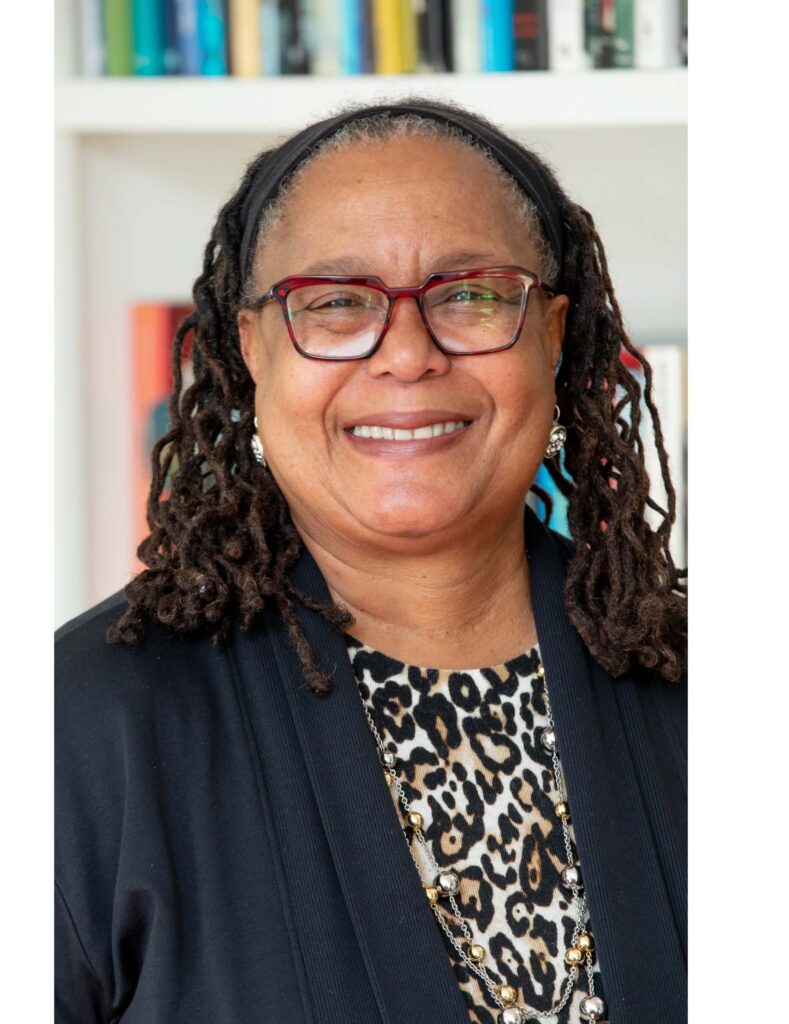
Evelynn Hammonds
@Harvard
Barbara Gutmann Rosenkrantz Professor of the History of Science and of African and African American Studies, Harvard University
Professor Evelynn M. Hammonds is the Barbara Gutmann Rosenkrantz Professor of the History of Science and Professor of African and African American Studies. She has been on the Harvard faculty for 19 years where she served as chair of the Department of the History of Science from 2017 to 2022. She earned her Ph.D. in the Department of the History of Science at Harvard and was a post-doctoral fellow at the Institute for Advanced Study at Princeton. She has an undergraduate degree in physics from Spelman College and a bachelor’s degree in electrical engineering from Georgia Tech. She earned the S.M. in Physics from MIT. She also taught at MIT for 10 years in the Program in Science, Technology, and Society. Her research focuses on the history of scientific, medical and socio-political concepts of race and gender in the United States. At Harvard she currently serves on the university-wide committee to examine Harvard’s relationship to slavery; the Faculty Executive Committee of the Peabody Museum and she chairs the Steering Committee on Human Remains in the Harvard Museum Collections. She also works on projects to improve the representation of men and women of color in STEM fields. She is a member of the Committee on Women In Science, Technology, and Medicine (CWSEM) of the National Academy of Sciences. She was elected to the National Academy of Medicine in 2018 and the American Academy of Arts and Sciences in 2021.
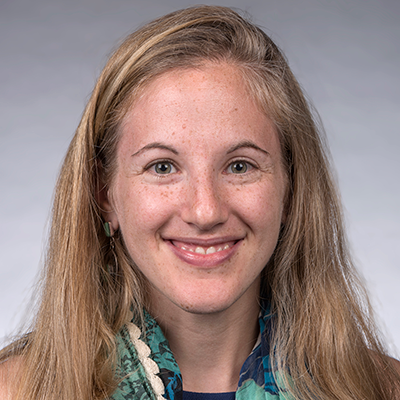
Mariah Kornbluh
@KornbluhMariah
Assistant Professor, University of Oregon
Dr. Mariah Kornbluh received her Ph.D. in Ecological Community Psychology from Michigan State University and is an Assistant Professor in the Psychology Department at the University of Oregon. Dr. Kornbluh’s scholarship addresses issues of inequality (at the intersections of race or ethnicity, gender, social class, immigration status, or other social forces) by exploring how children and adolescents develop an understanding of structural inequalities and the agency to engage in social and political action (i.e., develop critical consciousness), and how such consciousness empowers marginalized youth to navigate structural inequities (with a particular focus on educational and health systems). She takes a strength-based approach to her research by exploring how children and youth can be their own agents of change in reimagining and transforming institutions that have systematically disadvantaged our most vulnerable communities. Dr. Kornbluh’s research reflects her ongoing commitment towards disrupting educational and health disparities by partnering with communities and children (through youth-led participatory action research) and applying social network analysis to move beyond individual deficit-focused analyses and instead contributing to an inclusive, open, and action-oriented science. Her research has led to over thirty peer-reviewed publications in high impact journals (i.e., Child Development, Journal of Adolescent Health, and American Journal of Health Promotion), and several book chapters. She is the Associate Editor of the journal Evidence & Policy, and serves on the editorial boards of the Journal of Early Adolescence and the Journal of Adolescent Research. Her research has been funded by the Spencer Foundation, American Psychological Association, World Templeton Charity Foundation, and the University of South Carolina College of Arts and Sciences.
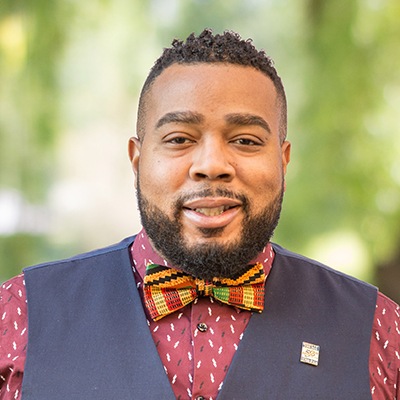
Daytheon Sturges
@daytheon
Assistant Professor of Family Medicine, Associate Program Director of Regional Affairs, University of Washington School of Medicine
Professor Sturges was raised in the piney hills of Haynesville, Louisiana. I received my BS in biology from Louisiana Tech University, Master of PA Studies from LSU Health – Shreveport, and Doctor of Philosophy (Ph.D.) in health studies with a focal area in higher education from Texas Woman’s University, also completing a certificate in health informatics. I have practiced in several medical disciplines including primary care, internal medicine, and rheumatology. I am active in the PA Education Association, where I serve as the chair of the Diversity and Inclusion Mission Advancement Commission and as a member of the Editorial Advisory Board and the former Justice, Equity, Diversity, & Inclusion (JEDI) feature editor for the Journal of PA Education. I am also a member of the Constituent Relations Workgroup for the American Academy of Physician Assistants. I received the Physician Assistant Education Association’s Rising Star Award for 2021 and also became a Distinguished Fellow of the American Academy of Physician Assistants.
I am currently the Department of Family Medicine Vice Chair for Justice, Equity, Diversity, and Inclusion (JEDI, and Assistant Professor of Family Medicine, Associate Program Director of Regional Affairs and JEDI at the University of Washington School of Medicine. I also practice as a family medicine provider at UW Primary Care – Northgate.
My academic and research interests include the intersection of medicine and social justice, the impostor phenomenon in underrepresented minorities in medicine, burnout in underrepresented minority medical faculty, health promotion and education, and the role of social determinants of health in clinical decision-making. Outside of work, I am active in the community most notably through my fraternal organization, Alpha Phi Alpha Fraternity, Inc. I view medicine as a ministry and consider it an intrinsic duty to promote and deliver high-quality healthcare.

Sarah Brown
@Brown_e_Points
News Editor, The Chronicle of Higher Education
Sarah Brown joined The Chronicle of Higher Education in 2015. In 2022, she became news editor, where she helps oversee daily news coverage and coordinates the reporting internship program.
In more than six years as a reporter, Sarah wrote about Title IX and colleges’ handling of sexual assault and harassment, whether higher ed is really committed to racial equity, and how mental-health struggles are derailing students, academically and otherwise. In addition to campus culture, she covered enrollment challenges, financial turmoil, leadership controversies, and the connection between education and health.
Sarah’s bylines have appeared in The New York Times and other newspapers, and she makes regular broadcast-media appearances for The Chronicle, including on C-SPAN, St. Louis Public Radio, Wisconsin Public Radio, WBUR (Boston), and KUOW (Seattle).
Sarah studied journalism and political science at the University of North Carolina at Chapel Hill, but she likes to say that she really graduated from The Daily Tar Heel, where she was a reporter and editor all four years.
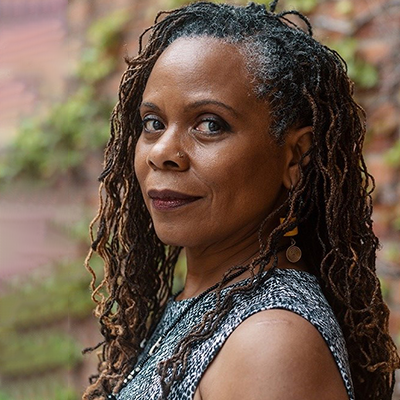
Chandra Ford
@DrChandraFord
Professor and Founding Director, Center for the Study of Racism, Social Justice & Health, University of California Los Angeles Fielding School of Public Health
Dr. Chandra L. Ford is Professor of Community Health Sciences and Founding Director of the Center for the Study of Racism, Social Justice & Health in the Fielding School of Public Health at the University of California at Los Angeles (UCLA). She is lead editor (with Derek Griffith, Marino Bruce and Keon Gilbert) of Racism: Science & Tools for the Public Health Professional (APHA Press, 2019), which was named an Outstanding Academic Title for 2020 by the American Library Association’s Choice magazine. She earned a doctorate in Health Behavior from the the UNC Gillings School of Global Public Health and completed postdoctoral fellowships in Social Medicine (at UNC School of Medicine) and Epidemiology (at Columbia University’s Mailman School of Public Health), the latter as a W. K. Kellogg Foundation Kellogg Health Scholar.
Her work offers conceptual and methodological tools for studying racism as a public health problem. She originated (with Collins Airhihenbuwa) the Public Health Critical Race Praxis, which is a framework for applying Critical Race Theory empirically. Much of her empirical work examines inequities in HIV testing, care and prognoses, or documents barriers to services among LGBTQ survivors of intimate partner violence. Her work has been published in the American Journal of Public Health, the Boston University Law Review, Ethnicity & Disease, Health Promotion Practice, Journal of Acquired Immune Deficiency Syndromes, Social Science & Medicine, and other peer-reviewed journals.
Dr. Ford has received many teaching awards and several notable honors, including the 2020 Wade Hampton Frost Award from the Epidemiology Section of the American Public Health Association, a Lifetime Achievement Award from the Association of Black Women Physicians, a TrueHero Award from TruEvolution and the 2019 Paul Cornely Award from the Health Activist Dinner group.
Dr. Ford serves the profession extensively. In 2016, she served on the National Academy of Medicine’s Committee on Community-based Solutions to Promote Health Equity in the United States and was named co-chair of the Committee on Science of the American Public Health Association’s Anti-Racism Collaborative. She is a longstanding member of the American College of Epidemiology’s Minority Affairs Committee and a former president of the Society for the Analysis of African American Public Health Issues. In addition, she has been involved with the Black Radical Congress and partnered with the Black Coalition Fighting Back Serial Murders.
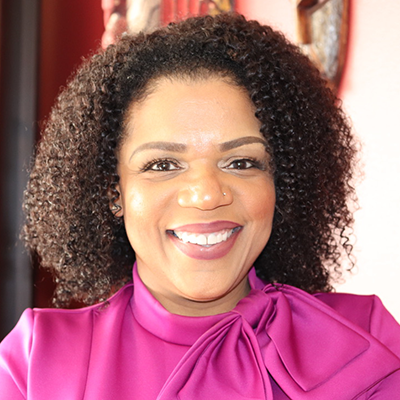
Debra Furr-Holden
@DrDebFurrHolden
Dean, New York University School of Global Public Health
Dr. Debra Furr-Holden is an epidemiologist and nationally recognized leader in health equity research, practice and translation. Dr. Furr-Holden has worked extensively with a wide range of partners including community-based organizations, local municipal officials, and national policy makers on community-driven and evidence-informed interventions to promote health equity. She has expertise in community-based participatory research, action-oriented policy research, behavioral health, including addictions, alcohol problems, community mental health, and community violence prevention; and large-scale research program implementation and evaluation and early career training/mentoring. Dr. Furr-Holden’s community-based, action-oriented research has driven multiple policy interventions to address some of the nation’s greatest public health challenges, especially among racial and ethnic minorities and in racially- and economically-segregated communities. Dr. Furr-Holden’s research is grounded in the principles and practices for understanding and intervening on the social determinants of health and promoting health equity. Among her many awards, she was the recipient of the 2006 Presidential Early Career Award for Scientists and Engineers (Office of the White House) and the 2021 Service Award from the Society for Prevention Research. Dr. Furr-Holden attended the Johns Hopkins University Krieger School of Arts and Sciences (BA Natural Sciences and Public Health, 1996) and Johns Hopkins Bloomberg School of Public Health (PhD, 1999). She currently serves as the Dean of the NYU School of Global Public Health.
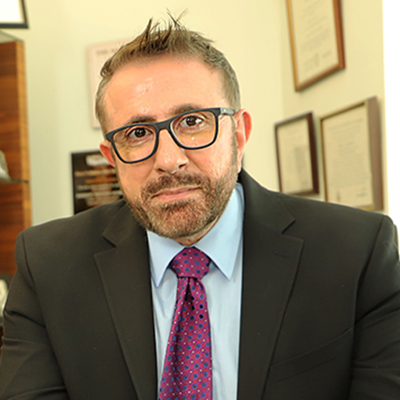
Perry Halkitis
@DeanPNHalkitis
Dean, Professor, Rutgers School of Public Health
Perry N Halkitis, PhD, MS, MPH, is a public health psychologist, infectious disease epidemiologist, applied statistician, researcher, educator, and advocate. He is also an actively sought-out expert for television, print, and other mass media.
For three decades, the focus of his research has been on the emergence, prevention, and treatment of infectious diseases, specifically, HIV, HPV, andother sexually transmitted infections, and more recently SARS-CoV-2. His program of study has sought to disentangle the biological, behavioral, psychosocial, and structural mechanisms that predispose people and populations to these infectious diseases, and the synergies of infectious disease with mental health burden – including drug abuse – in sexual, gender, and racial, and ethnic minority populations.
Dr. Halkitis is currently dean of the Rutgers School of Public Health and professor in the Departments of Biostatistics and Epidemiology and Urban- Global Public Health. He is also the founder and director of the Center for Health, Identity, Behavior & Prevention Studies (CHIBPS) and a primary member of the Rutgers Cancer Institute of New Jersey and the Global Health Institute. He holds the status of Professor Emeritus at the College of Global Public Health at New York University.
Dr. Halkitis is the author of numerous books, including his 2019 book, Out in Time: The Public Lives of Gay Men from Stonewall to the Queer Generation. His 2013 book, The AIDS Generation: Stories of Survival and Resilience, is a 2014 Lambda Literary Award nominee. He has authored some 300 peer-reviewed academic manuscripts and also actively disseminates knowledge to mainstream media, appearing frequently on television, radio, print, and podcasts.
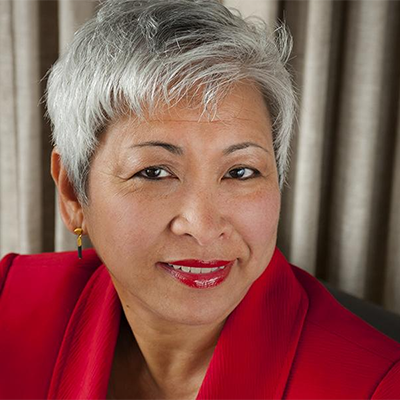
Maureen Lichtveld
@M_Lichtveld
Dean, University of Pittsburgh School of Public Health
Dr. Maureen Lichtveld, is a member of the National Academy of Medicine (NAM) and a member of NAM’s leadership Council with over 35 years of environmental public health expertise. She is the Dean of the School of Public Health, the Jonas Salk Chair in Population Health, and Professor of Environmental and Occupational Health at the University of Pittsburgh. As Dean, Dr. Lichtveld oversees seven academic departments, 640 students, 160 faculty and 320 staff. Her research focuses on environmentally-induced disease, health disparities, climate and health, environmental health policy, disaster preparedness, public health systems, and community resilience. Dean Lichtveld is a member of the NAS Board on Global Health, NAM’s planning committee on Climate and Health, the NASEM Resilient America Roundtable, and fulfills a leadership role in NAM’s Special Interest Group on Climate and Health. She serves on the Advisory Committee for the NASEM Climate Communications Initiative and is a member of the NASEM advisory committee of the Division of Life Sciences. Dr. Lichtveld is a member of several NASEM consensus report committees and reviewer of numerous NASEM reports. She currently chairs the NASEM Committee on Progress Towards Human Health and Community Resilience in the Gulf of Mexico Region. Dean Lichtveld is the Vice Chair of the Consortium of Universities for Global Health (CUGH) and is a member of the CUGH research and workforce development committees and the climate and health working group. Honors include: Johns Hopkins University Society of Scholars, CDC’s environmental health scientist of the year, and woman of the year of the City of New Orleans for her contributions to science.

Keshia Pollack Porter
@DR_KMP
Bloomberg Centennial Professor and Chair, Department of Health Policy and Management, Johns Hopkins Bloomberg School of Public Health
Keshia M. Pollack Porter, PhD, MPH, is a Bloomberg Centennial Professor and Chair of the Department of Health Policy and Management at the Johns Hopkins Bloomberg School of Public Health. Dr. Pollack Porter also directs the School’s Institute for Health and Social Policy, and the Health Policy Research Scholars (HPRS) – a national program of the Robert Wood Johnson Foundation. Dr. Pollack Porter conducts research to promote active play and active transportation, safe built environments, transportation equity, and at the nexus of transportation and health. Dr. Pollack Porter is also a leading health equity scholar who advances policies that address the social, economic, environmental, and political drivers of health using tools such as health impact assessment and strategies that promote health in all policies.
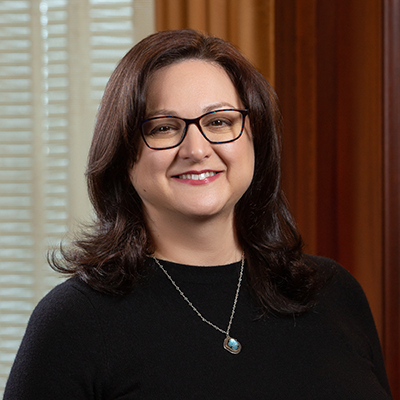
Debbie Bazarsky
@BU_Diversity
Director of LGBTQIA+ Center for Faculty and Staff, Boston University
Debbie Bazarsky is the inaugural director of BU’s LGBTQIA+ Center for Faculty & Staff. For the past two decades, her career has been focused on a comprehensive range of diversity, equity, and inclusion efforts. She is the founding director of two additional LGBTQIA+ centers at Princeton University and the University of California, Santa Barbara. She has also served as Dean of Diversity, Equity, and Inclusion (DEI) and Dean of Enrollment, Engagement, and Diversity at the Pennsylvania College of Art & Design and as a senior diversity and inclusion practitioner at Princeton University. Through DEI roles, Dr. Bazarsky has led strategic initiatives around recruitment, retention, and campus climate. Examples include developing an institutional DEI campus plan, developing and overseeing administrative diversity goals for the Board of Trustees, supporting cabinet officers and their staff in the development of divisional diversity strategic plans, overseeing a campus climate survey to inform change management efforts, providing antiracism education and implicit bias training for faculty and staff, co-creating an institutional protocol for reviewing and responding to bias incidents on campus, and developing inclusive institutional policies and practices. Dr. Bazarsky has also served as a faculty member and lecturer at numerous universities teaching in the areas of sexuality and gender, social justice education, and higher education administration. She derives the greatest professional satisfaction from fostering partnerships that make equity and inclusion a shared responsibility and lead to systemic institutional change.
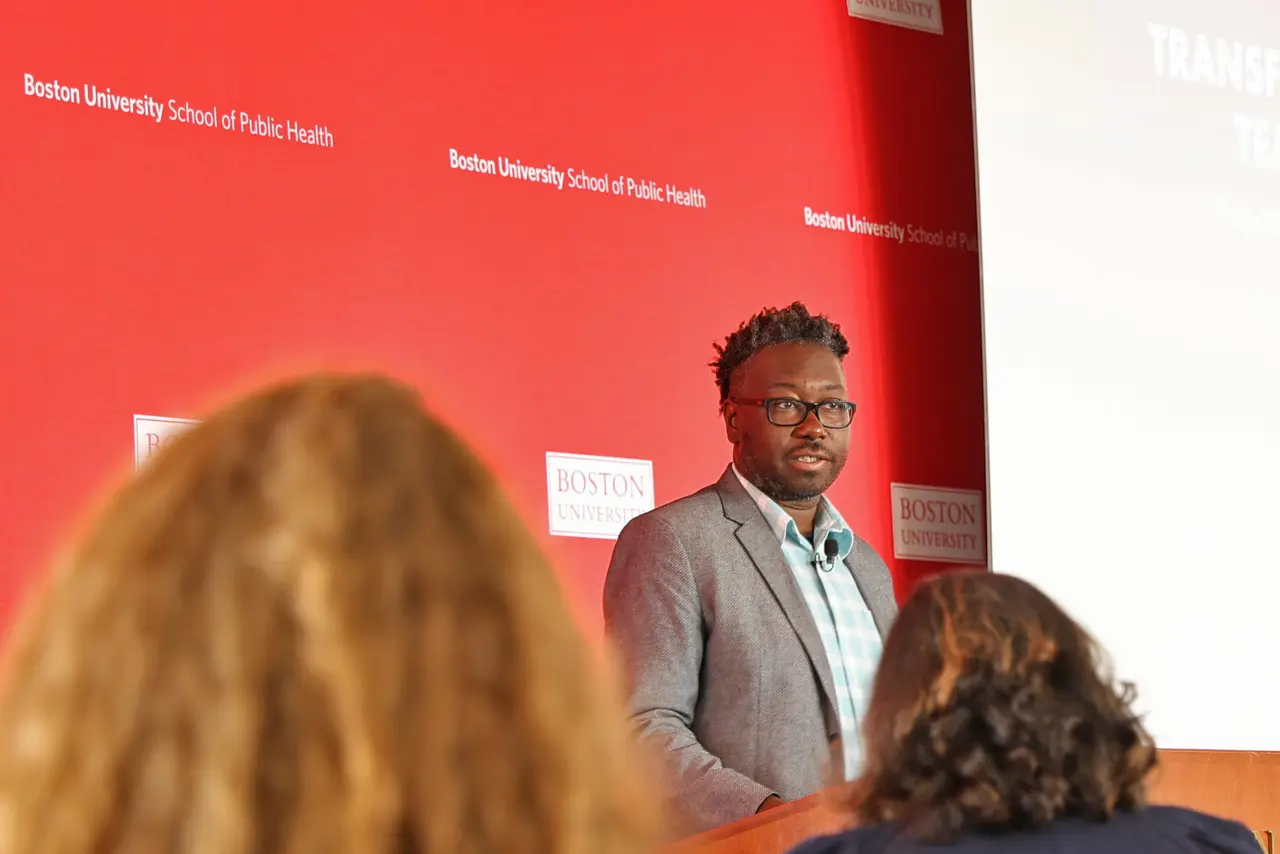
Subscribe to PHC
Get the latest from Boston University School of Public Health



